When contemplating the creation of a business proposal template, it’s essential to understand the intricacies involved in crafting a persuasive business proposal. A compelling proposal letter should contain the appropriate information to pique the interest of your prospective collaborator, without necessarily divulging every detail of the proposed partnership. Numerous business proposal templates can be found online, but discerning which format best suits your requirements can be challenging.
As you plan to utilize a business proposal example for developing your own unique proposal, it’s crucial to have a clear grasp of the objectives your proposal must achieve. Familiarizing yourself with the most effective strategies for composing these documents can greatly impact the end result, allowing you to maximize the benefits of working with sample proposals as you navigate the stages involved in assembling a comprehensive business proposal template.
Table of Contents
Business Proposal Templates
Business Proposal Templates are comprehensive documents designed to outline a proposed business idea, project, product, or service in a structured and persuasive manner. These templates provide a professional framework for presenting a business proposal to potential clients, investors, or stakeholders. Business Proposal Templates aim to convince the audience of the viability, benefits, and value of the proposed initiative, ultimately seeking their support or partnership.
Business Proposal Templates serve as powerful tools for presenting a compelling business case, attracting investment, securing partnerships, or winning new clients. By using these templates, businesses can effectively communicate their ideas, showcase their expertise, and present a persuasive argument for their proposed solution. The templates promote consistency, professionalism, and structured thinking, enabling businesses to increase their chances of success in the competitive marketplace.
What Is a Business Proposal?

A business proposal is a formal, written document presented to a prospective client or partner with the aim of securing new business or collaboration opportunities. It outlines the company’s proposed solution to a specific problem or opportunity, demonstrating the value and benefits that the client or partner can expect from working together. The primary goal of a business proposal is to persuade the recipient that the proposed solution is the best option, showcasing the company’s expertise, experience, and capabilities.
What Does a Business Proposal Do?
A business proposal serves several important functions in the context of establishing new business relationships or expanding existing ones. Primarily, it aims to:
Present a solution: A business proposal identifies a specific problem or opportunity faced by a prospective client or partner and presents a tailored solution that addresses their needs or capitalizes on the opportunity.
Demonstrate expertise: A well-crafted proposal showcases your company’s knowledge, skills, and experience, positioning you as a reliable and competent partner for the project or collaboration.
Establish value: The proposal should articulate the value proposition, detailing the benefits the prospective client or partner stands to gain by working with your company. This may include improved efficiency, cost savings, increased revenue, or other tangible advantages.
Provide a clear plan: The business proposal outlines the project’s scope, timeline, deliverables, and resources required, offering a comprehensive roadmap for successful execution.
Build trust: By presenting a professional, well-researched, and persuasive proposal, you can instill confidence in your abilities and foster trust between your company and the prospective client or partner.
Facilitate negotiations: A business proposal serves as a starting point for negotiations, providing a basis for discussing project specifics, pricing, and terms before finalizing a contractual agreement.
Types of Business Proposals
Business proposals can be categorized into various types based on their purpose, audience, and delivery method. Here are some common types of business proposals:
Solicited Proposals: These proposals are submitted in response to a specific request from a client or organization, such as a Request for Proposal (RFP), Request for Quotation (RFQ), or Request for Information (RFI). The prospective client has explicitly expressed a need or opportunity, and solicited proposals are tailored to address those requirements.
Unsolicited Proposals: These proposals are presented to a prospective client or partner without prior solicitation, often as a proactive effort to identify new business opportunities. Unsolicited proposals require more research and a compelling value proposition, as the recipient may not have previously considered the proposed solution or collaboration.
Informal Proposals: These proposals are typically brief and less formal, often used for smaller projects or internal communications within a company. Informal proposals may take the form of a letter, email, or short presentation.
Formal Proposals: These proposals are more detailed and structured, often required for larger projects, government contracts, or complex business collaborations. Formal proposals typically include a cover letter, executive summary, problem statement, proposed solution, project plan, timeline, budget, qualifications, and supporting documentation.
Grant Proposals: These proposals are submitted to secure funding from government agencies, foundations, or other organizations offering grants. Grant proposals focus on the social, environmental, or economic impact of the proposed project and must align with the grant provider’s objectives and guidelines.
Sales Proposals: These proposals are designed to sell a product or service to a prospective client, emphasizing the features, benefits, and value of the offering. Sales proposals may include pricing, delivery terms, and case studies or testimonials to support the proposal.
Partnership Proposals: These proposals aim to establish a strategic alliance or collaboration between two or more businesses. Partnership proposals outline the objectives, roles, responsibilities, and benefits of the partnership, as well as any legal or financial considerations.
Each type of business proposal serves a unique purpose and requires a tailored approach to effectively address the needs of the prospective client or partner.
How to Write a Business Proposal
Writing a compelling business proposal involves several key steps. Here’s a step-by-step guide with examples for each step:
Research and understand the client’s needs:
Before writing the proposal, thoroughly research the prospective client, their industry, and their specific needs or challenges.
Understand their goals, target audience, and any competitors. This information will help you tailor your proposal to their requirements.
Example: If you are proposing a digital marketing strategy to a client, research their current online presence, target market, competitors’ strategies, and areas of opportunity for growth.
Define the problem or opportunity:
Clearly articulate the problem or opportunity your proposal aims to address. Be specific and concise, demonstrating that you understand the client’s needs and can provide a tailored solution.
Example: “Our analysis indicates that your company’s online presence is not effectively reaching your target market, resulting in missed opportunities for customer engagement and revenue growth.”
Present your solution:
Detail the proposed solution, including the services, products, or strategies you will employ to address the problem or capitalize on the opportunity. Highlight your unique selling points and any innovative approaches.
Example: “We propose a comprehensive digital marketing strategy, including search engine optimization, targeted social media campaigns, and engaging content creation, to increase your online visibility and reach your target audience.”
Showcase your qualifications and expertise:
Demonstrate your company’s skills, experience, and successes, positioning you as the ideal partner for the project. Include relevant case studies, testimonials, or references to support your claims.
Example: “Our team of digital marketing experts has successfully implemented strategies for over 50 clients in similar industries, resulting in an average increase of 25% in website traffic and a 15% boost in sales.”
Outline the project plan and timeline:
Provide a detailed plan of action, including the project’s scope, deliverables, milestones, and estimated completion dates. This helps set clear expectations and shows your commitment to timely execution.
Example: “We will begin with a comprehensive website audit, followed by keyword research and content optimization, which will be completed within the first month. Social media campaigns will be launched in month two, with ongoing monitoring and adjustments as needed.”
Provide a clear pricing structure:
Detail the cost of your services, including any one-time fees, recurring charges, or optional add-ons. Be transparent and itemize the costs, so the client can understand the value they are receiving.
Example: “Our digital marketing package includes an initial setup fee of $2,000, followed by a monthly management fee of $1,500.
Additional services, such as content creation and email marketing, can be added for an extra fee.”
Close with a call-to-action:
End the proposal by encouraging the client to take action, whether it’s setting up a meeting, signing a contract, or asking for further information.
Example: “We’re confident that our digital marketing strategy will deliver exceptional results for your business. To discuss further and begin our partnership, please contact us at your earliest convenience.”
Proofread and revise:
Before submitting your proposal, proofread it carefully for errors, inconsistencies, or unclear language. Make sure it’s well-structured, easy to read, and visually appealing.
Once you have completed these steps, your business proposal will be ready to present to your prospective client, showcasing your expertise and the value you can bring to their organization.
Business Proposals: Key takeaways
A business proposal is a vital document that serves as a cornerstone for establishing new business relationships or expanding existing ones. To create an effective and persuasive proposal, it’s essential to understand the key takeaways from the process:
Purpose: The primary goal of a business proposal is to present a tailored solution to a specific problem or opportunity faced by a prospective client or partner, demonstrating the value, benefits, and expertise that your company can offer.
Types: Business proposals can be categorized into various types, including solicited, unsolicited, informal, formal, grant, sales, and partnership proposals. Each type serves a unique purpose and requires a tailored approach to address the prospective client or partner’s needs.
Research: Thoroughly research the client’s needs, industry, and competition before crafting your proposal. Understanding their goals and challenges will help you tailor your proposal to their requirements, making it more compelling and relevant.
Structure: A well-structured proposal typically includes an executive summary, problem or opportunity statement, proposed solution, qualifications and expertise, project plan and timeline, pricing structure, and a call-to-action. Make sure your proposal is easy to read, visually appealing, and free of errors.
Customization: Tailor your proposal to the specific needs and objectives of the client or partner. Show that you understand their unique challenges and can provide a targeted solution that delivers tangible results.
Persuasion: Use persuasive language and compelling arguments to convince the prospective client or partner that your company is the best choice for their needs. Showcase your expertise, experience, and unique selling points to build trust and credibility.
Clarity and transparency: Clearly outline the scope, deliverables, timeline, and pricing structure of your proposed solution. Providing this information upfront helps set expectations and prevent misunderstandings or disputes down the line.
Call-to-action: Close your proposal by encouraging the recipient to take action, such as scheduling a meeting, requesting additional information, or signing a contract. A strong call-to-action can help convert your proposal into a successful business agreement.
FAQs
What are the main components of a business proposal?
The main components of a business proposal include an executive summary, problem or opportunity statement, proposed solution, qualifications and expertise, project plan and timeline, pricing structure, and a call-to-action.
What is the difference between a business proposal and a business plan?
A business proposal is a document presented to a prospective client or partner to secure new business or collaboration opportunities, while a business plan is an internal document that outlines a company’s goals, strategies, and plans for growth and success.
How long should a business proposal be?
The length of a business proposal can vary depending on the complexity of the project and the client’s requirements. However, it’s essential to keep the proposal concise, focusing on key information and avoiding unnecessary details. A well-structured proposal can range from a few pages for a simple project to several dozen pages for a more complex proposal.
How can I make my business proposal stand out from the competition?
To make your business proposal stand out, focus on customization, showcasing your expertise, providing a unique and innovative solution, and offering a clear value proposition. Additionally, ensure your proposal is well-structured, visually appealing, and free of errors.
What is the difference between a solicited and unsolicited business proposal?
A solicited business proposal is submitted in response to a specific request from a client or organization, such as a Request for Proposal (RFP). The client has explicitly expressed a need or opportunity, and the proposal is tailored to address those requirements. An unsolicited business proposal is presented without prior solicitation, often as a proactive effort to identify new business opportunities. It requires more research and a compelling value proposition, as the recipient may not have previously considered the proposed solution or collaboration.
How do I follow up on a business proposal?
Following up on a business proposal involves reaching out to the prospective client or partner after a reasonable amount of time has passed since submitting the proposal. You can follow up via email or phone call to inquire about their thoughts, feedback, or any questions they may have. Be respectful of their time and avoid being overly aggressive or pushy.
Can I use a business proposal template?
Using a business proposal template can be a helpful starting point, as it provides a structure and format to follow. However, it’s essential to customize the template to address the specific needs and objectives of the prospective client or partner, demonstrating that you understand their unique challenges and can provide a targeted solution.




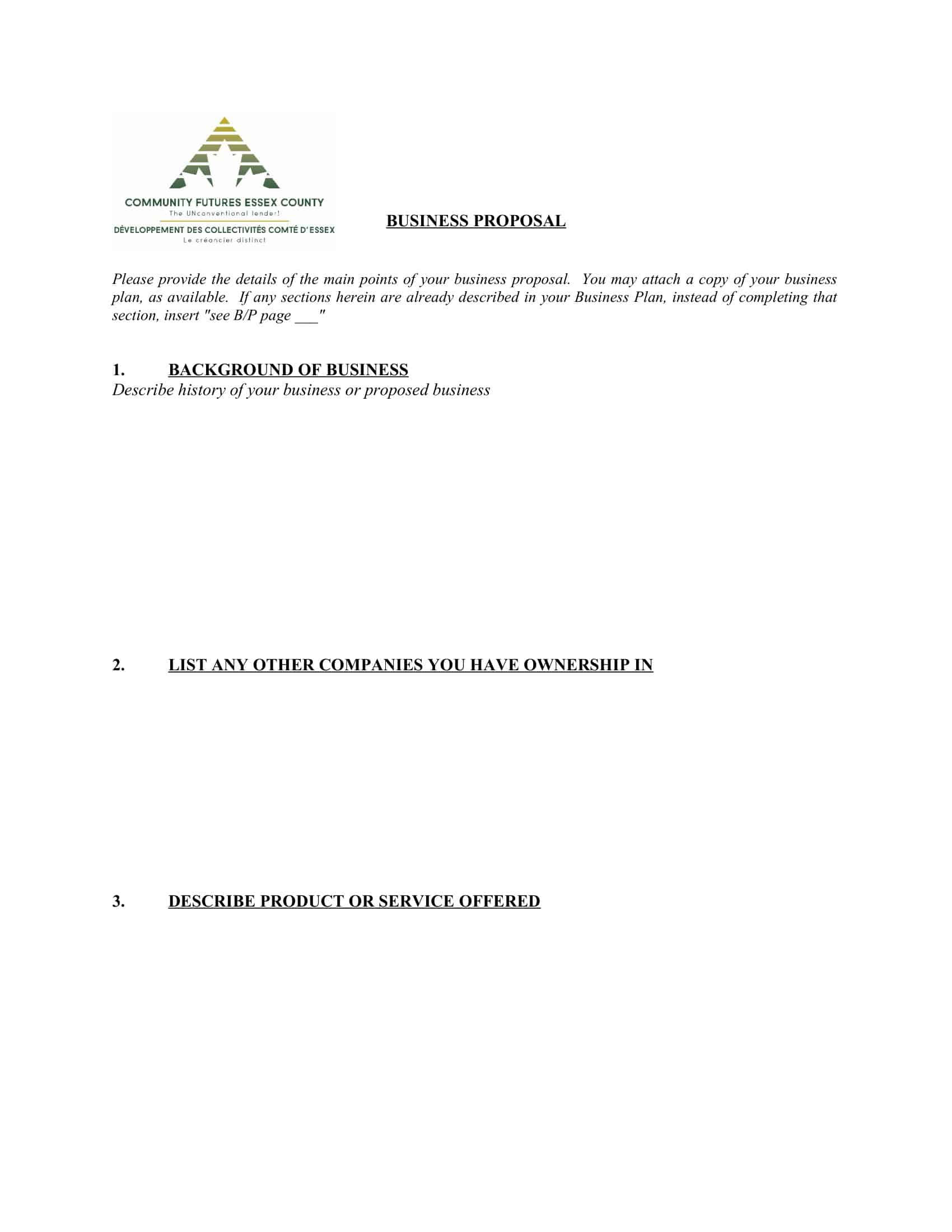

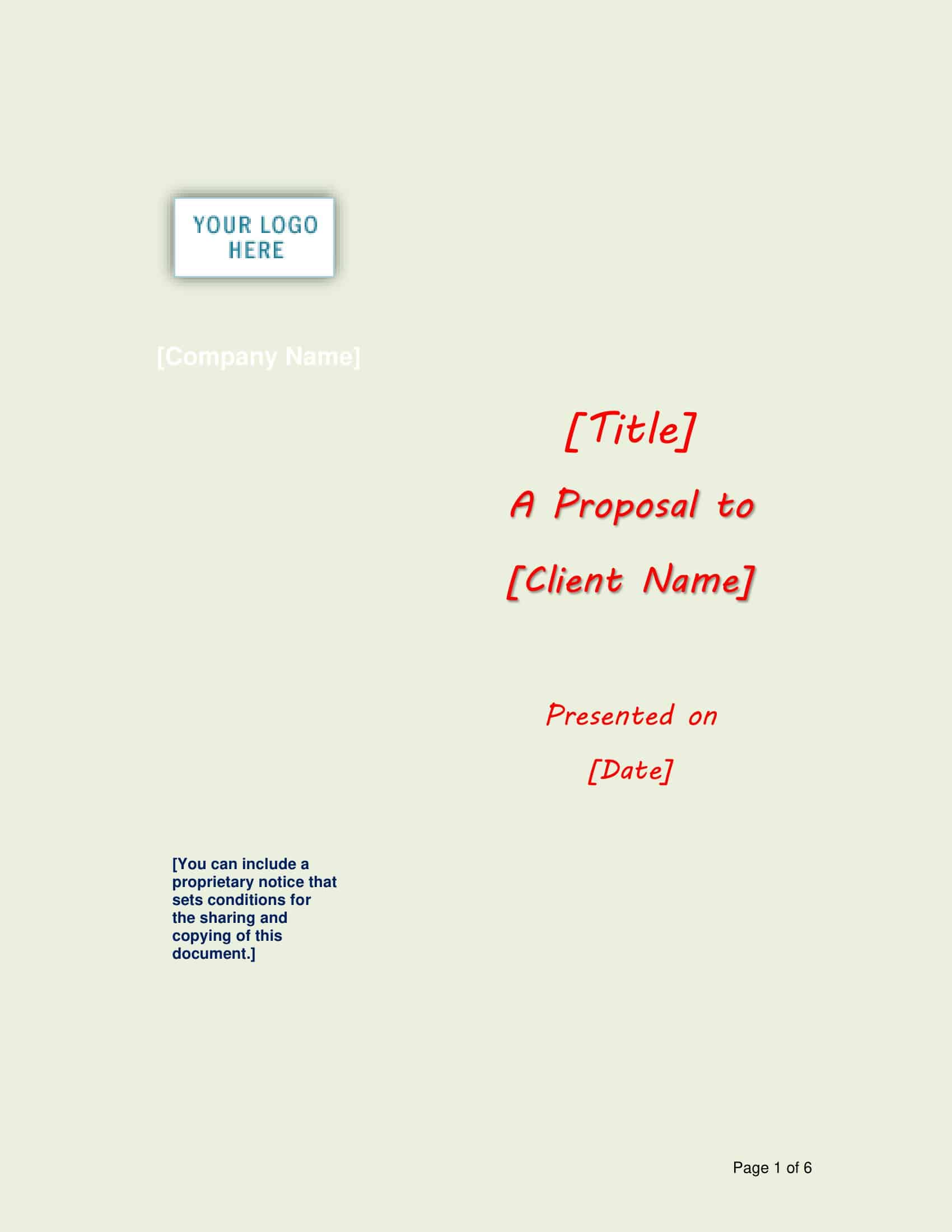




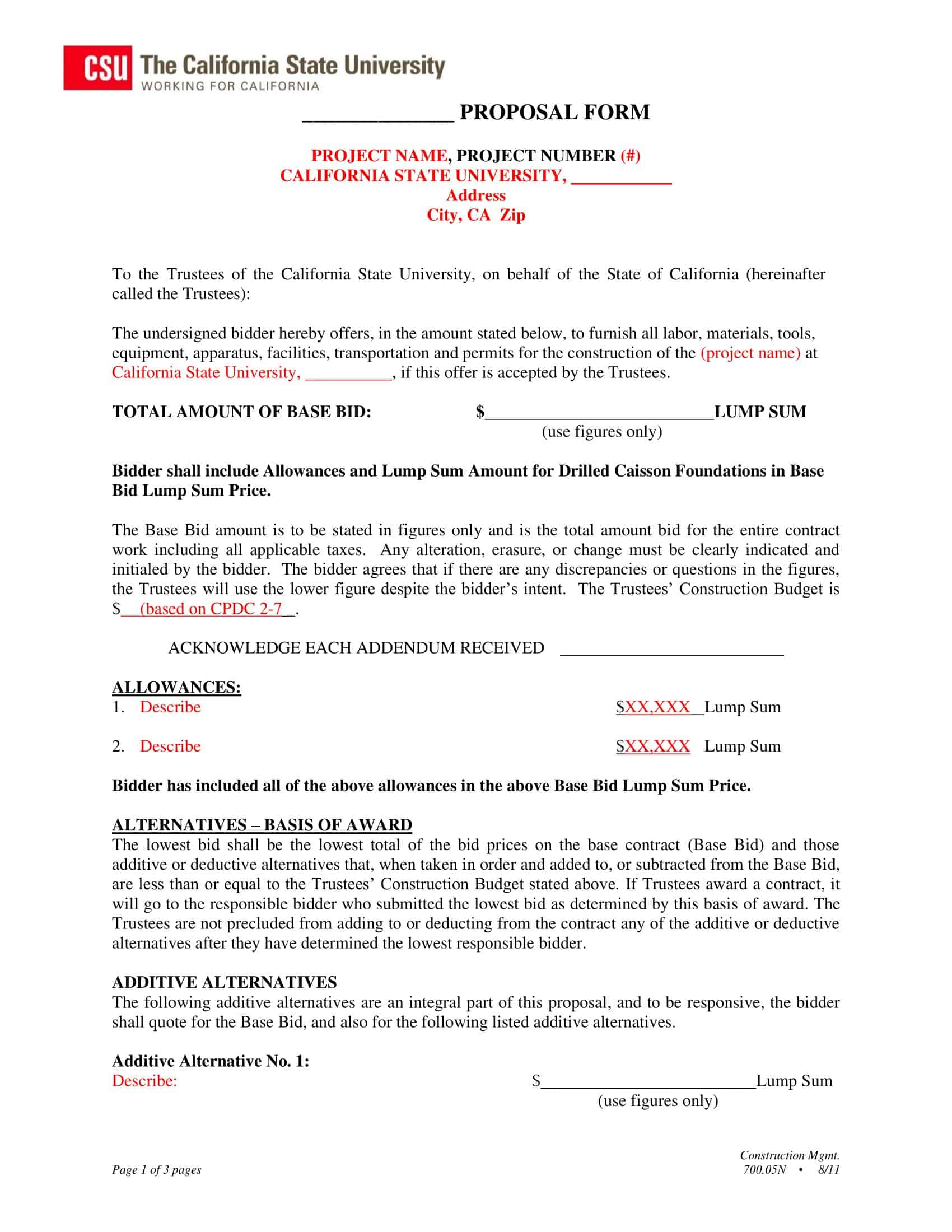







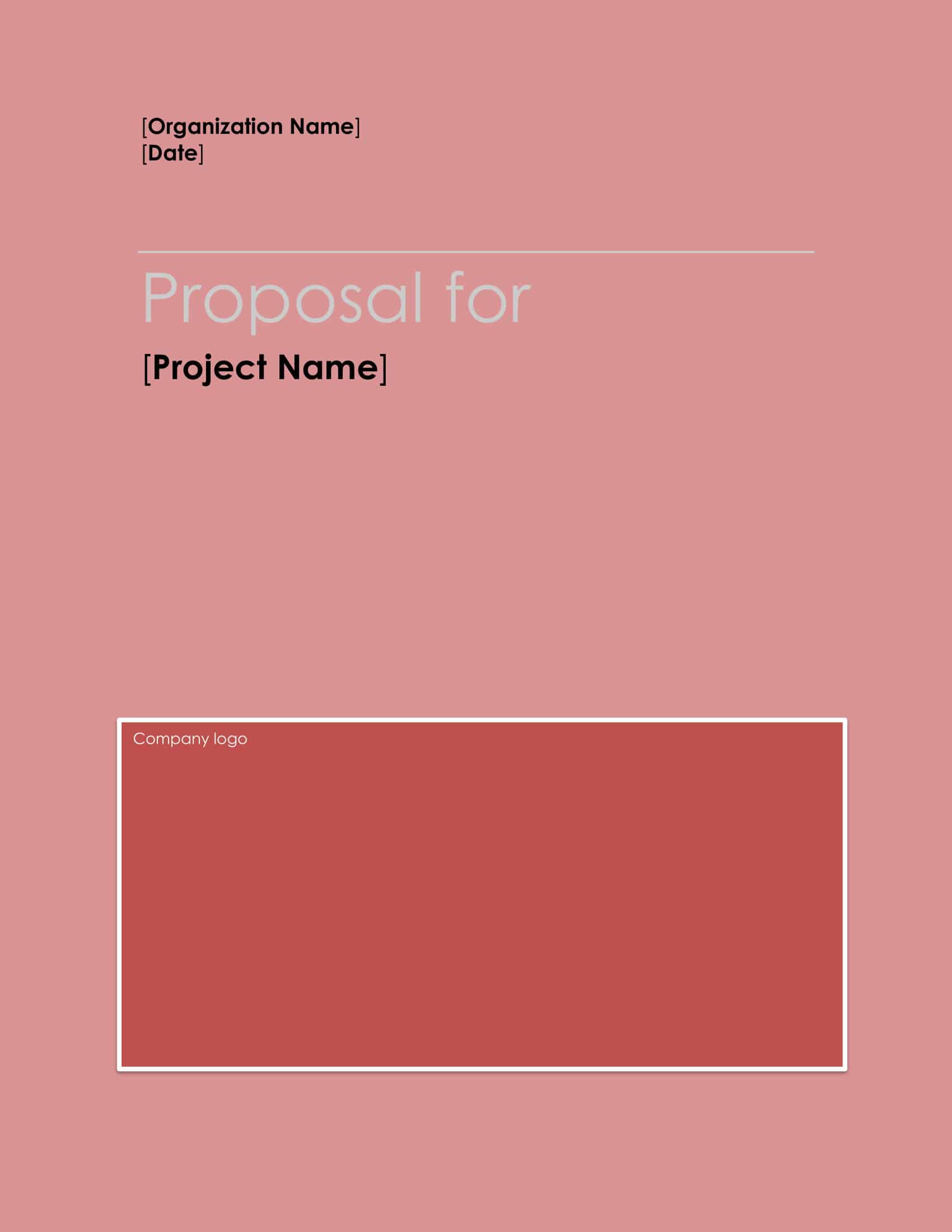












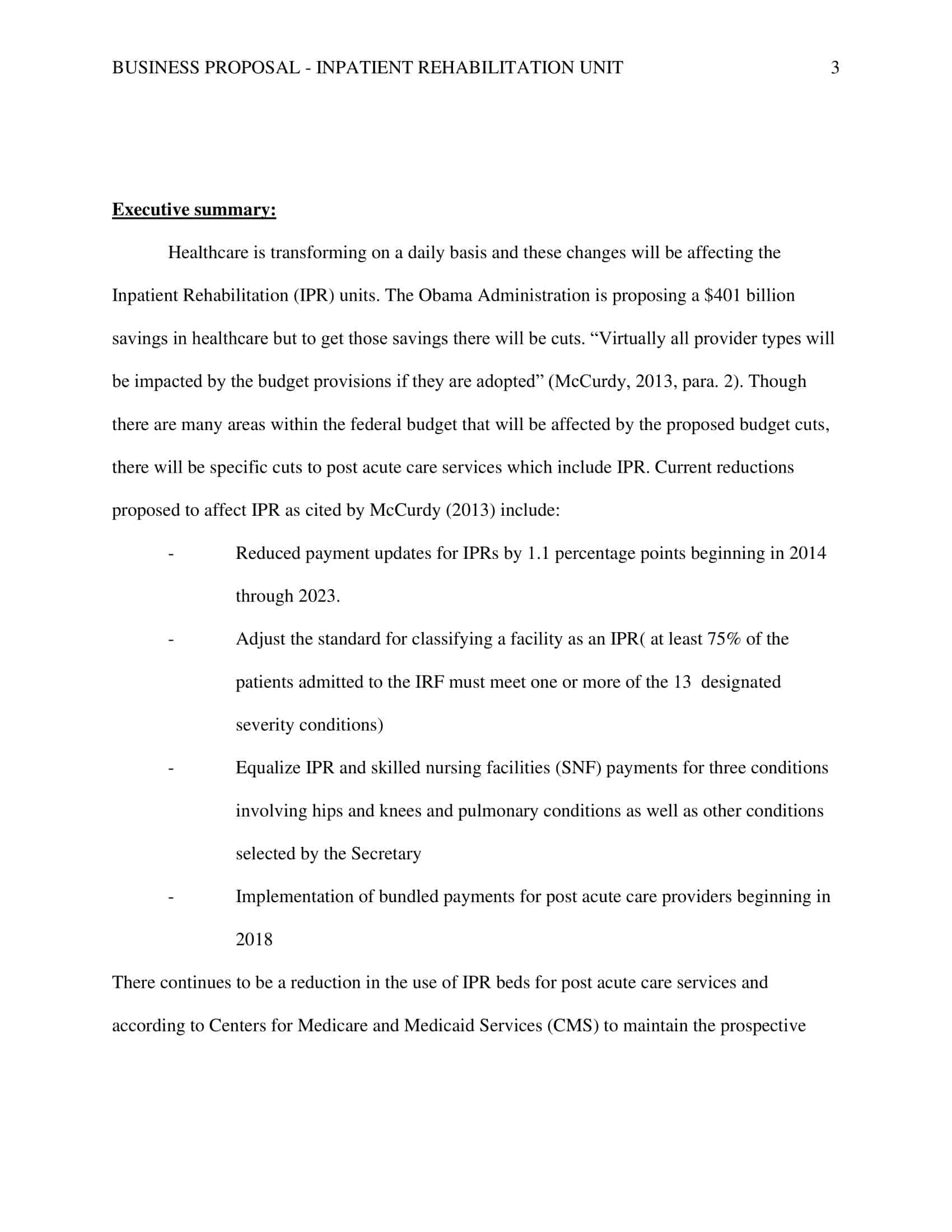

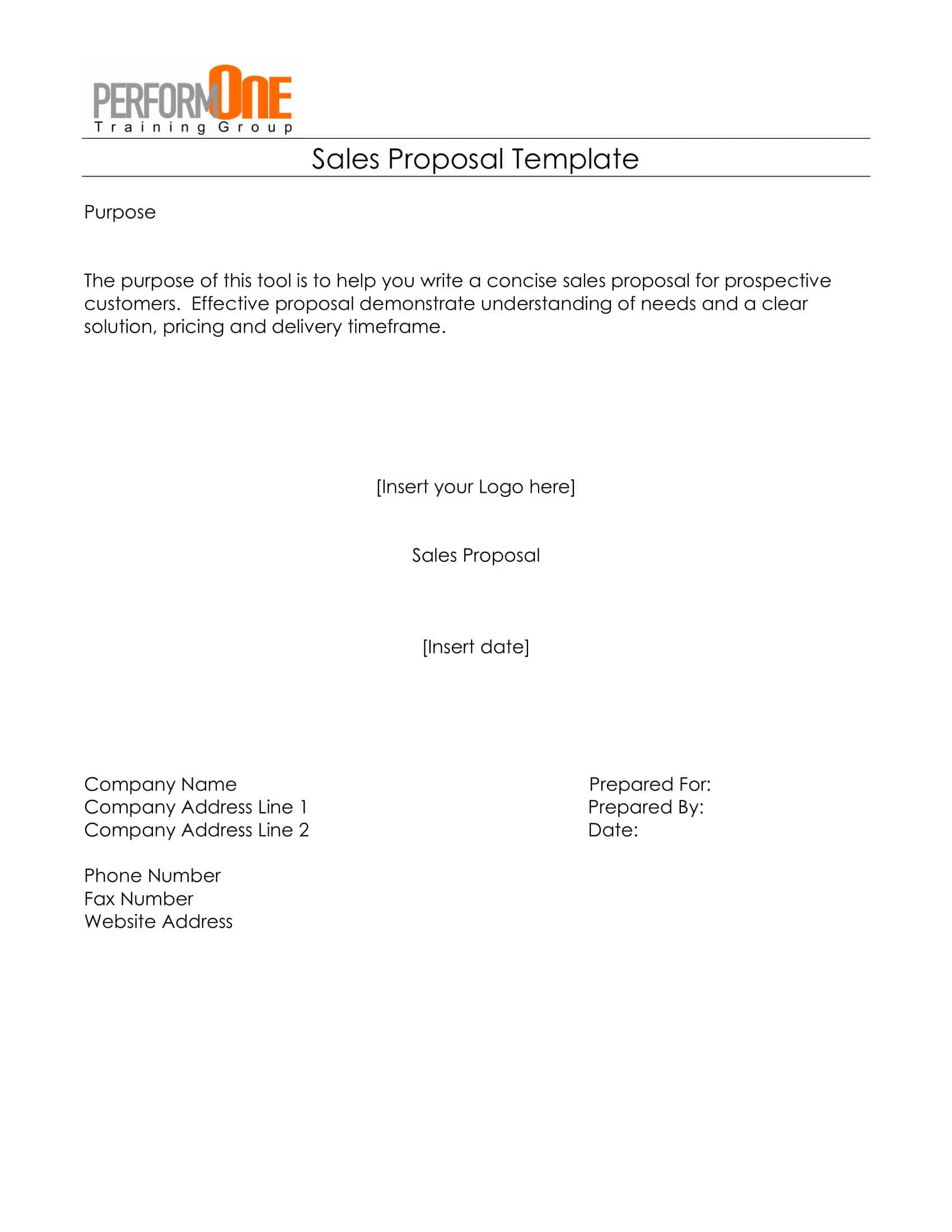











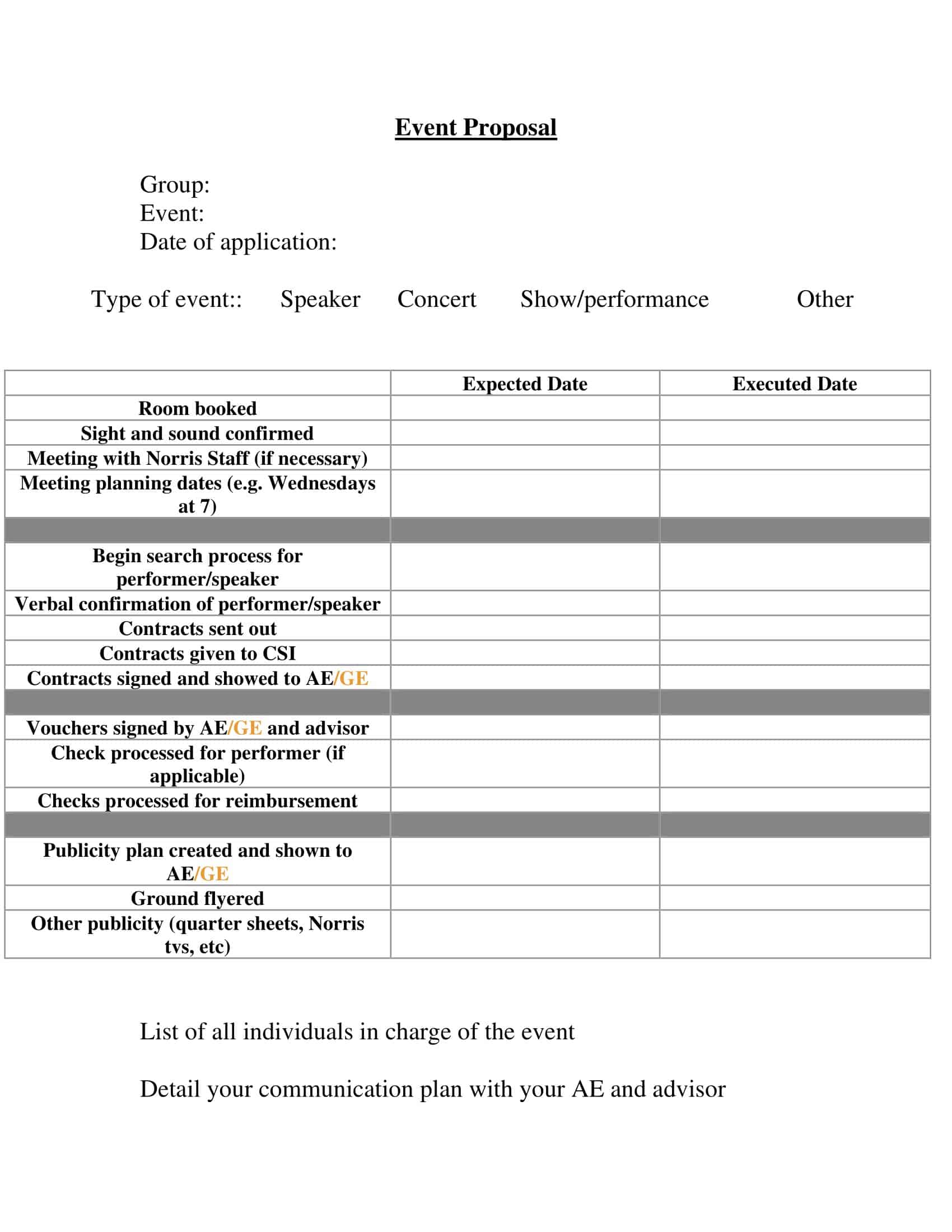
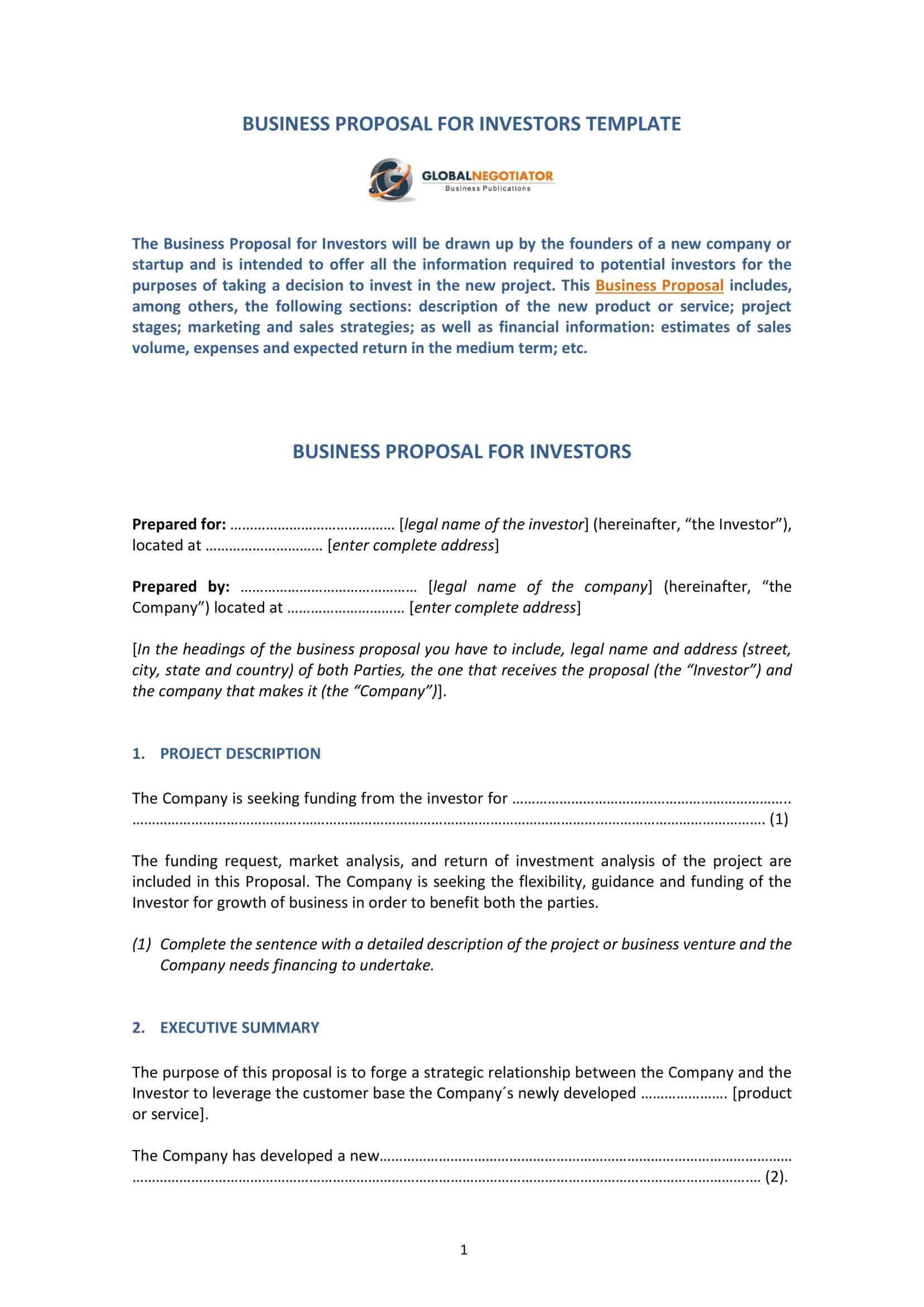
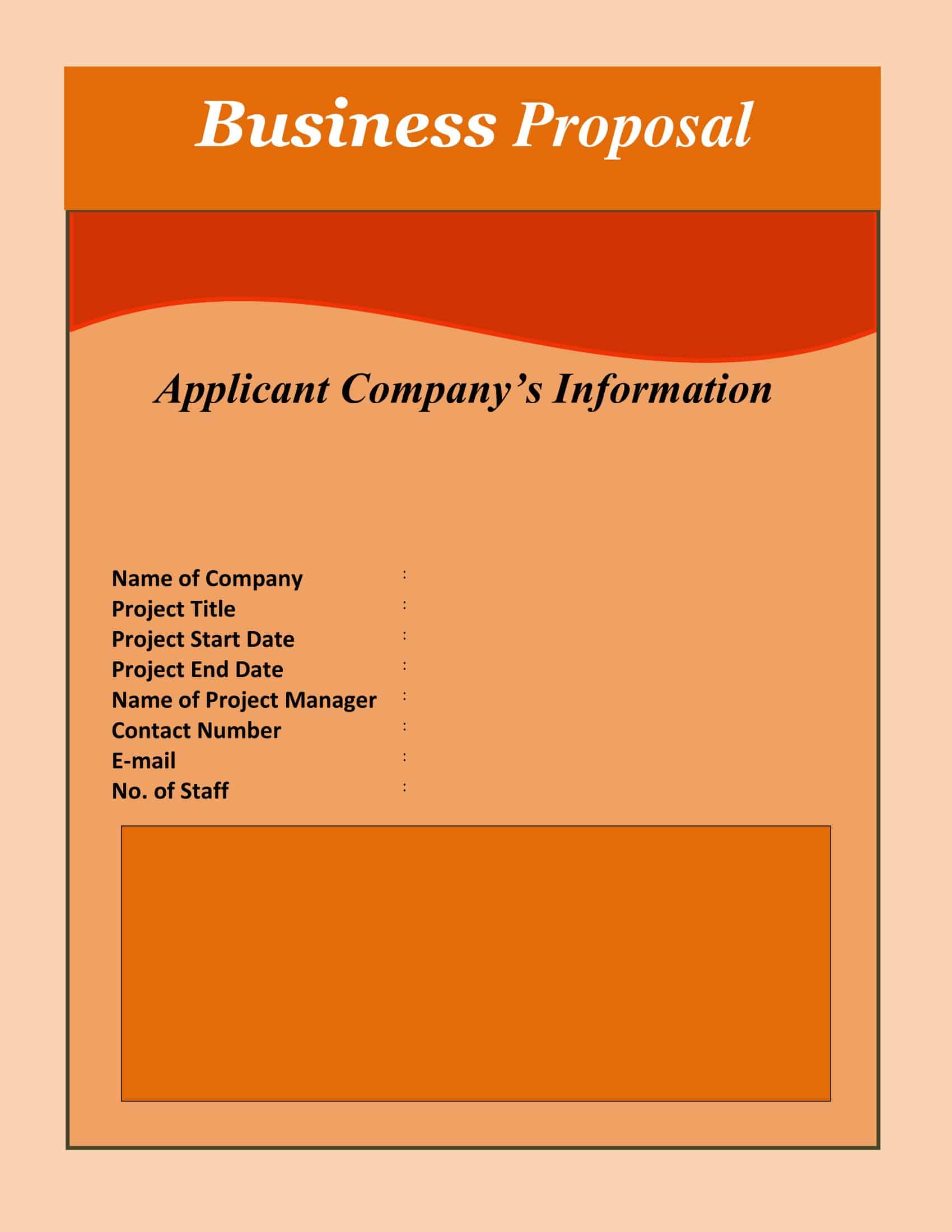

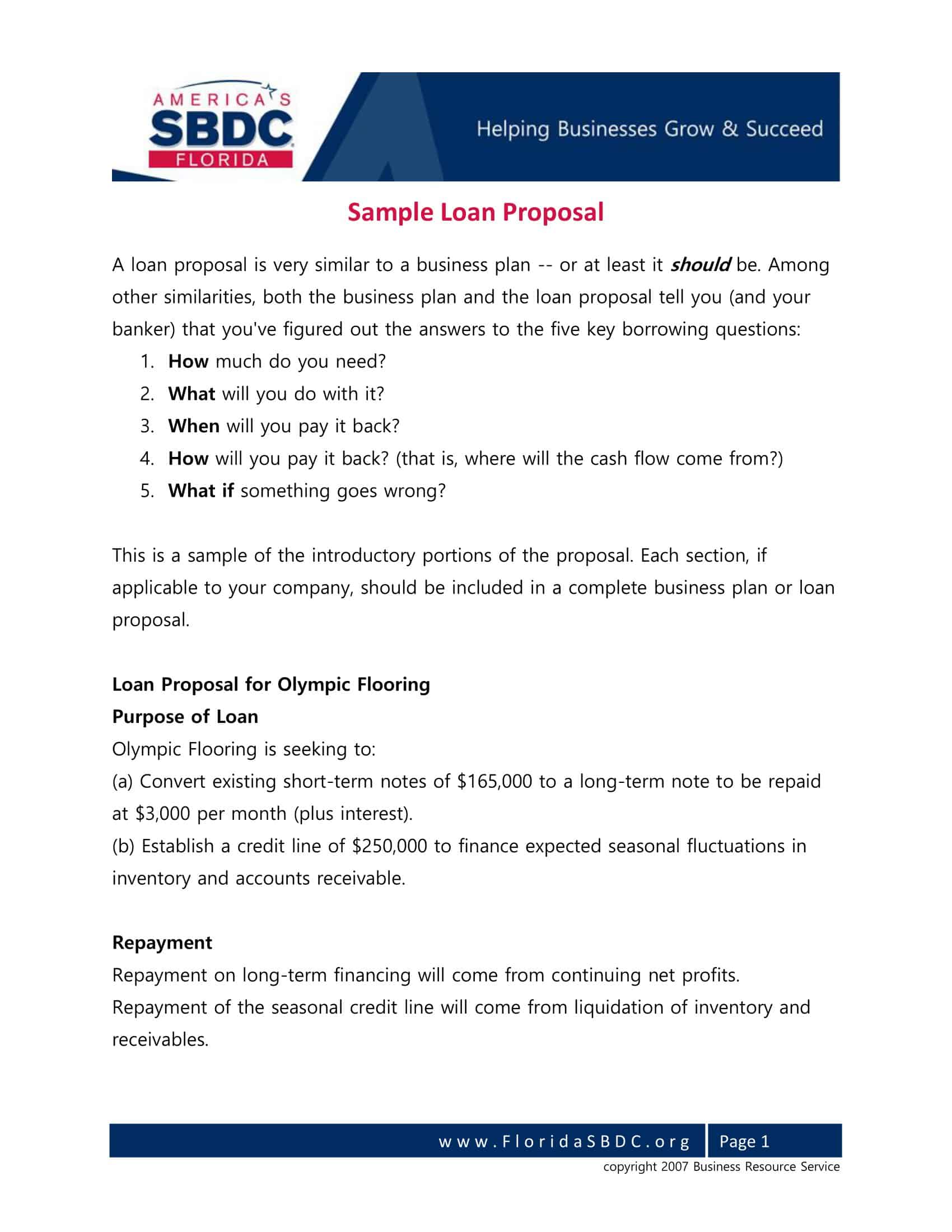
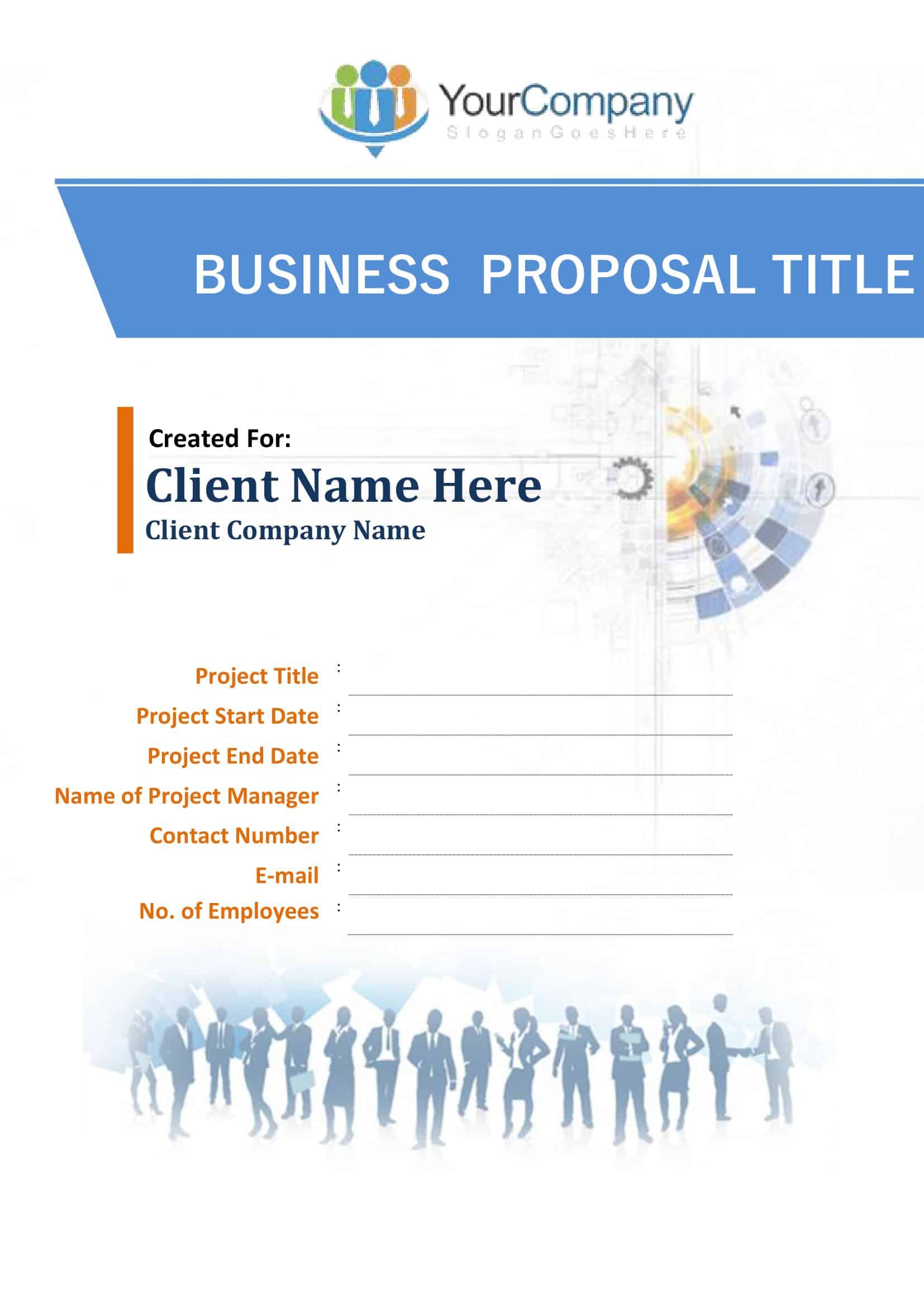
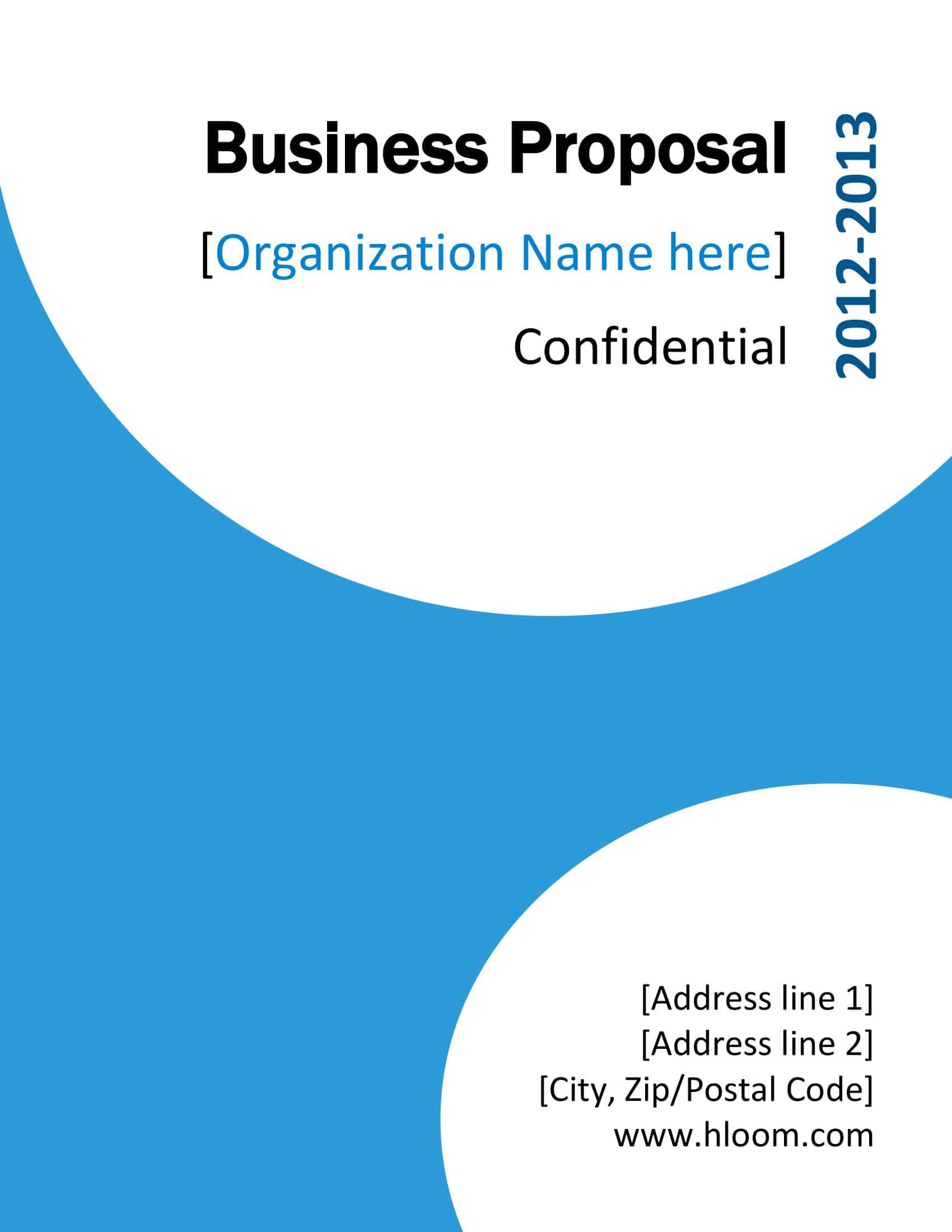
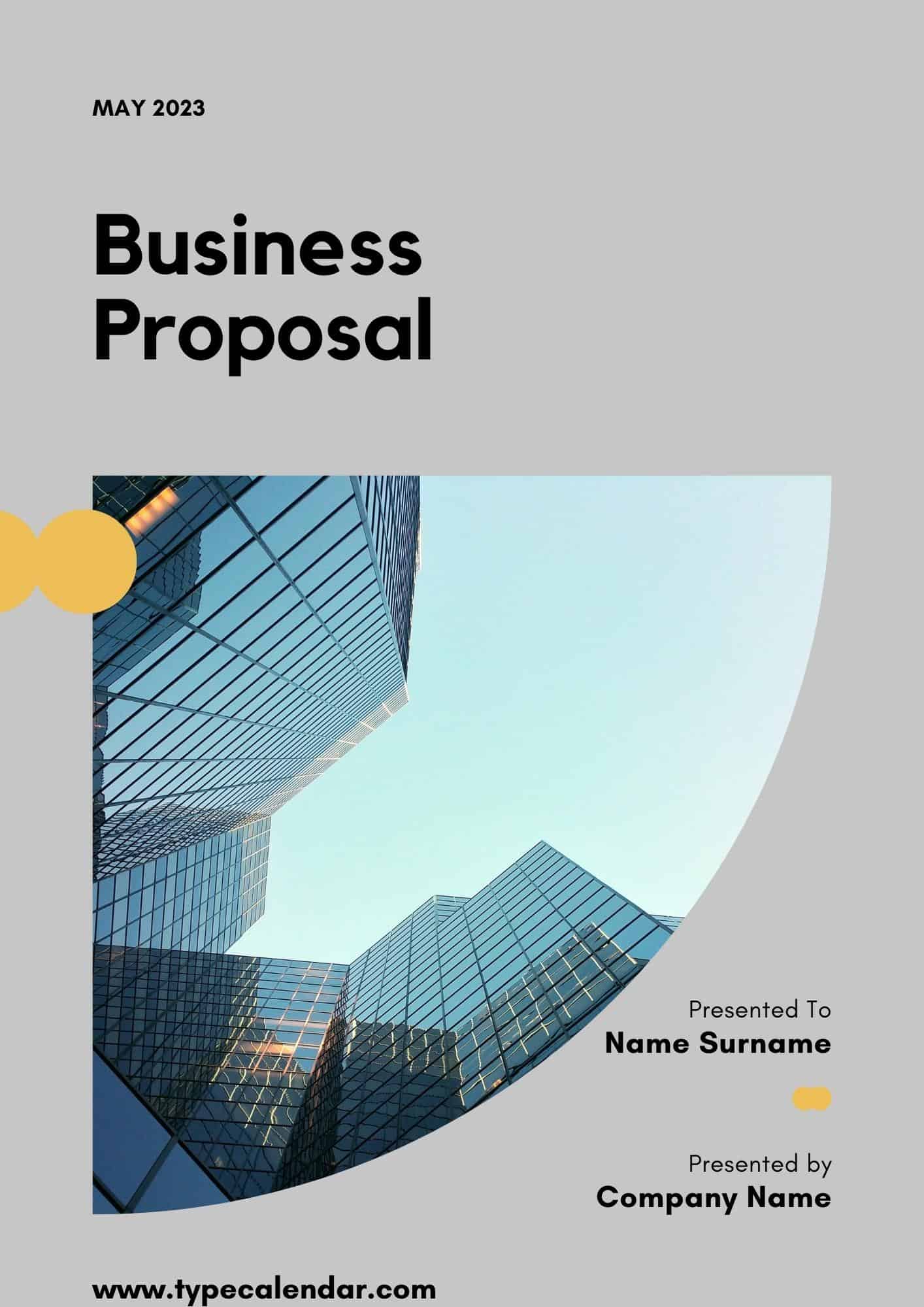
![Free Printable Roommate Agreement Templates [Word, PDF] 1 Roommate Agreement](https://www.typecalendar.com/wp-content/uploads/2023/06/Roommate-Agreement-150x150.jpg)
![Free Printable Credit Card Authorization Form Templates [PDF, Word, Excel] 2 Credit Card Authorization Form](https://www.typecalendar.com/wp-content/uploads/2023/06/Credit-Card-Authorization-Form-150x150.jpg)
![Free Printable Stock Ledger Templates [Excel,PDF, Word] 3 Stock Ledger](https://www.typecalendar.com/wp-content/uploads/2023/08/Stock-Ledger-150x150.jpg)
